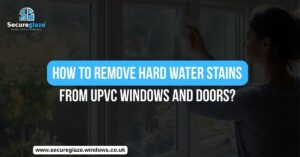Deciding between bi fold vs sliding doors isn’t just about style; it’s about how you want your home to work and feel every single day. Bi-fold doors bring flexibility and convenience, making it easy to open up your living space and blend indoors with the garden. On the other hand, sliding doors give you wide, uninterrupted views and a clean, modern look that feels luxurious. Both choices can raise your property’s value, flood your rooms with natural light, and create a smoother flow between inside and out. By considering things like bifold door cost in the UK, upkeep, security features, and overall design, you’ll be in a stronger position to choose the option that best fits your lifestyle and long-term comfort.
Bi Fold vs Sliding Doors: Which Is the Right Choice for Your UK Homes?
Bifold Doors | Internal Bifold Doors | Internal Sliding Doors
The Importance of Door Selection in Modern Homes
In today’s modern UK homes, open-plan living and layouts that seamlessly connect interiors with patios, balconies, or gardens are more popular than ever. Installing large glass doors isn’t just about architectural style; it directly shapes the way you live. The right choice influences:
- How much natural light flows into your rooms?
- The connection between your indoor and outdoor spaces.
- The overall sense of openness makes interiors feel brighter and more spacious.
- The value of your property, with stylish, energy-efficient doors, is a major selling point.
That’s why the bifold vs sliding doors debate is more than just a design trend; it’s about creating a home that feels both practical and beautiful. Whether you’re renovating or starting from scratch, the choice between the two isn’t a quick decision but a long-term investment in comfort, lifestyle, and usability. For many homeowners, considering factors like bifold door cost in the UK alongside style and functionality helps make the decision clearer and more realistic
What are Bi-Fold Doors?

Bi-fold doors, also known as folding sliding doors, are designed with multiple panels that are hinged together. Much like a concertina, they glide and fold neatly to one or both sides, creating a smooth and effortless opening.
Key Features of Bi-Fold Doors
- Panels fold back completely, providing a wide, uninterrupted opening that seamlessly connects spaces.
- Typically crafted from aluminium, timber, or uPVC, combined with large panes of glass for a bright and airy look.
- Available in sizes ranging from a compact two-panel setup to a striking wall of glass with multiple sections.
- Many designs include a traffic door, a single panel that swings open like a regular door for everyday convenience without unfolding the entire system.
This versatility is why many homeowners choose internal bifold doors with glass to separate living areas. They allow light to filter through while maintaining an open, modern feel, making them perfect for both large open-plan layouts and smaller, cosy spaces.
What Are Sliding Doors?

Sliding doors are designed with large glass panels that glide effortlessly along horizontal tracks. Instead of folding away, one panel simply slides behind the other, leaving part of the opening clear while still creating a modern, streamlined look.
Key Features of Sliding Doors
- Panels move sideways rather than folding, making them smooth and easy to operate.
- Built with slim aluminium frames, giving you maximum glass surface and wider views.
- Available in versatile options ranging from classic two-panel sets to expansive three-panel or multi-panel layouts.
- Perfect for minimalist, modern homes, offering clean lines and uninterrupted views.
For homeowners who want to connect their living room, kitchen, or dining area with the outdoors, external sliding doors are a stylish solution. They allow more natural light in, open up spaces visually, and create a seamless transition between the house and garden or patio.
Bi Fold vs Sliding Doors Comparing Aesthetics: Style and Visual Impact
Bi-Fold Doors
Bi-fold doors bring a flexible and eye-catching style to any home. When fully opened, the panels fold back neatly to the side. Creating a seamless connection between your indoor living space and the garden. When closed, they form a series of framed glass sections that add character and rhythm to the wall, giving the room a more structured look.
Sliding Doors
In contrast, sliding glass patio doors focus on simplicity and elegance. With fewer frames and larger glass panels, they allow you to enjoy wide, uninterrupted views. Their sleek design makes them a favourite in contemporary homes where a smooth transition between inside and outside is essential.
If you love panoramic views and clean, modern lines, sliding doors are the better choice. But if you prefer a versatile, adaptable option that can open up an entire wall, bi-fold doors may suit you more.
Bi Fold vs Sliding Doors Space Considerations: How Much Room Do You Have?

Bi-Fold Doors
Bi-fold doors require some clearance for the panels to fold back when opened. In smaller patios, balconies, or gardens, the stacked panels may take up part of the usable space. Modern choices like upvc bifold doors are a practical option since they’re lightweight, durable, and can be designed to reduce the bulk, but they still need a little extra room to operate smoothly.
Sliding Doors
Sliding doors glide neatly along their tracks, with one panel moving behind the other. Since they don’t fold outward, they don’t intrude into your living area or garden. This makes them especially useful for compact spaces where saving every bit of room is important.
Bi Fold vs Sliding Doors: Natural Light and Views
Bi-Fold Doors
When closed, bi-fold doors break the view into several framed sections. While this slightly divides the scenery, it still allows plenty of daylight to brighten your home. When fully opened, the panels fold back to create a wide, unobstructed opening that connects your indoor space directly with the outdoors.
Sliding Doors
In contrast, sliding patio doors are designed to maximise both sunlight and views. With fewer frames and more glass surface, they provide a clear, panoramic outlook. Even when closed, they maintain a seamless visual link between your home and the garden, making your rooms feel brighter and more expansive.
Bi Fold vs Sliding Doors: Ease of Use and Everyday Living
Bi-Fold Doors
Bi-fold doors can be opened either fully or just partially, depending on how much space you want to use. Many designs also include a handy traffic door, which works like a standard door for everyday trips outside, so you don’t have to fold the entire system just to step into the garden. With larger setups, though, the folding action can feel a little heavier and may need more effort.
Sliding Doors
Sliding doors move smoothly along their track, thanks to a well-designed sliding door mechanism that makes them easy to operate with minimal effort. They’re perfect for quick access, but keep in mind that only part of the doorway can be open at once since one panel always overlaps the other. Because they don’t usually come with a separate traffic door, daily use might be slightly less convenient unless paired with an extra single door nearby.
Bi Fold vs Sliding Doors: Insulation and Energy Efficiency

In the UK, where winters can get quite cold, energy efficiency is an important factor to think about when choosing doors.
Bi-Fold Doors
Modern bi-folds with double or triple glazing and thermal breaks can keep the warmth in effectively. However, because they have multiple panels and frames, there are more spots where heat could escape. This is something to weigh up alongside the overall bifold door cost, since investing in higher-quality materials usually means better insulation and long-term savings on energy bills.
Sliding Doors
Sliding doors usually come with large, continuous glass panels and fewer frames. High-quality versions provide strong insulation and reduce draughts, helping to keep your home warmer in winter and cooler in summer.
Both styles can be energy-efficient if you pick the right design, but sliding doors often perform slightly better because of their larger glass sections and fewer gaps.
Bi Fold vs Sliding Doors: Security Factors
Both bi-fold and sliding doors are built with safety in mind, but they protect your home in slightly different ways.
Bi-Fold Doors
Bi-folds are fitted with several locking points along the track, which makes them strong and secure. However, since they have more hinges and moving parts, they may need occasional checks or maintenance to keep everything working smoothly.
Sliding Doors
Sliding doors are usually equipped with durable multi-point locks and toughened glass panels. Because they have fewer parts compared to bi-folds, they’re often harder to tamper with. If you ever feel the doors aren’t closing as tightly as they should, simple maintenance—like learning how to adjust sliding glass doors can keep them secure and operating at their best.
While sliding doors can feel slightly more secure overall, both options offer reliable protection when installed and maintained properly.
Bi Fold vs Sliding Doors: Durability and Maintenance
Bi-Fold Doors
Because bi-fold doors rely on several hinges, folding panels, and tracks, they need a little more attention to keep everything working smoothly. Over time, dust or small bits of debris can gather in the tracks, which may cause stiffness if not cleaned out. A quick check and occasional maintenance are usually enough to keep them running well.
Sliding Doors
Sliding doors are more straightforward in design, with fewer moving parts to worry about. When you choose good-quality options, such as upvc sliding doors, they’re built to last and only require minimal upkeep. Their tracks are made to handle frequent use, allowing the panels to glide effortlessly for years with little effort on your part.
If you’re after something easy to live with, sliding doors are generally the lower-maintenance option. Bi-folds may need a bit more care, but in return, they offer flexibility in how you open up your home.
Bi Fold vs Sliding Doors: Cost Comparison
The overall price of these doors depends on several factors. It includes their size, the type of frame material, and the kind of glazing you select.
Bi-Fold Doors
For smaller openings, bi-folds are usually the more economical choice. However, the cost increases as you add extra panels. Keep in mind that the price isn’t only about buying the doors themselves. Fitting bifold doors professionally is also an important part of the investment to ensure they work smoothly.
Sliding Doors
Sliding doors generally come with a higher upfront cost. This is because they use larger panes of glass, heavier frames, and, in premium slimline versions, more advanced engineering to achieve that sleek, minimal look.
If you’re on a tighter budget, bi-fold doors may suit you better. But if you’re prepared to invest more for style and performance, sliding doors offer a modern, high-end finish that adds a touch of luxury to your home.
Bi Fold vs Sliding Doors: The UK Climate Factor
With the ever-changing British weather, sunshine one moment, rain the next—it’s important to choose doors that can adapt to the seasons.
Bi-Fold Doors
On warm summer days, bi-folds are ideal for opening up the entire wall and blending your indoor space with the garden. Even a 4 panel bifold door can transform a room by creating a wide, airy opening.
Sliding Doors
During rainy or colder months, sliding patio doors let you enjoy wide, uninterrupted views of your garden or landscape while staying cozy inside. The large panes of glass mean you won’t miss the outdoors, even when the doors remain closed.
For countryside homes with breathtaking views, sliding doors allow you to enjoy the scenery year-round. In urban areas or houses with gardens, bi-folds offer more flexibility for everyday living.
Bi Fold vs Sliding Doors: Interior Design Impact
Bi-Fold Doors
Bi-folds act almost like a statement piece inside the home. When closed, they create a grid-like effect with their framed glass sections, adding character and rhythm to the room. They work especially well in homes that blend classic style with a modern touch. Even a compact 2 panel bifold door can bring this stylish feature-wall look without overwhelming the space.
Sliding Doors
Sliding doors, on the other hand, are designed to be subtle. With large glass panes and minimal frames, they quietly fade into the background, allowing your furniture, lighting, and décor to take center stage. They’re the go-to option for homeowners chasing a sleek, contemporary vibe.
Bi Fold vs Sliding Doors: Which Adds More Value?

Both sliding and bi-fold doors can increase the worth of your property, but they tend to do it in different ways.
Bi-folds, particularly double glazed bifold doors, are popular with families who want practical living and flexibility. They allow you to enjoy wide openings in summer while keeping warmth inside during colder months, which makes them both functional and appealing.
Sliding doors, by contrast, usually draw in buyers who are after a more premium, high-end feel. Their sleek design and uninterrupted glass give homes a modern, luxurious edge that stands out in the market.
No matter which you choose, investing in large glass doors is more than just an upgrade. It’s a long-term improvement that enhances both everyday living and your home’s resale value.
Final Verdict: Which One Should You Go For?
There isn’t a single “right” choice; it really depends on your home and lifestyle. Here’s a quick breakdown:
- Go for bi-fold doors if you want flexibility, the option to open up the entire wall, and a family-friendly setup that works for everyday living. Bifold doors enhance indoor-outdoor living, which is also why bifold door installation is a smart investment for homeowners looking to add both style and function
- Choose sliding doors if you’re after wide, uninterrupted views, low-maintenance design, and a sleek, modern vibe.
At the end of the day, it’s all about what suits your way of living, your budget, and the atmosphere you want to create in your home.
Secure Glaze: Transforming Homes with Stylish, Secure, and Energy-Efficient Doors
At Secure Glaze, we know that picking between bi-fold and sliding doors isn’t just about looks. It’s about making your home more comfortable, secure, and enjoyable. Whether you’re drawn to the versatility of a 2 or 4 panel bi-fold door or the sleek charm of sliding patio doors. Our specialists craft solutions designed around your lifestyle. We focus on long-lasting quality, energy-saving designs, and modern elegance. So your home feels brighter, warmer, and more connected to the outdoors. With Secure Glaze, you get peace of mind and a stylish upgrade that lasts for years.
Conclusion
Deciding between bi fold vs sliding doors isn’t about following a trend. It’s about finding what truly works for your home and lifestyle. Bi-fold doors bring flexibility and a sense of openness, making them great for busy households. Anyone who loves blending indoor and outdoor spaces. Sliding doors, on the other hand, offer smooth operation, wide glass views, and a touch of modern elegance. It keeps your rooms light and connected to the garden all year round. Both choices can lift the look and feel of your property while also adding real value. By thinking about your space, budget, and the way you live day to day, you’ll be able to choose doors. That not only looks stunning but also makes your home more enjoyable for years to come. Thinking about new doors for your home? Contact us today, and we’ll help you find the perfect fit for your space.
FAQs
Are bi-fold doors more budget-friendly than sliding doors?
Bi-fold doors usually work out cheaper for smaller spaces, but the price goes up if you add more panels. Sliding patio doors often cost a bit more upfront because of the larger glass sections and heavier frames.
Which option keeps my home warmer and more efficient?
Both styles can be very energy-efficient when fitted with double or triple glazing. Sliding glass doors often have the edge, as their wide panes mean fewer gaps for draughts
Not at all. Modern uPVC sliding doors are built to glide smoothly with little effort. Just keeping the tracks clean is usually enough to keep them working well.






